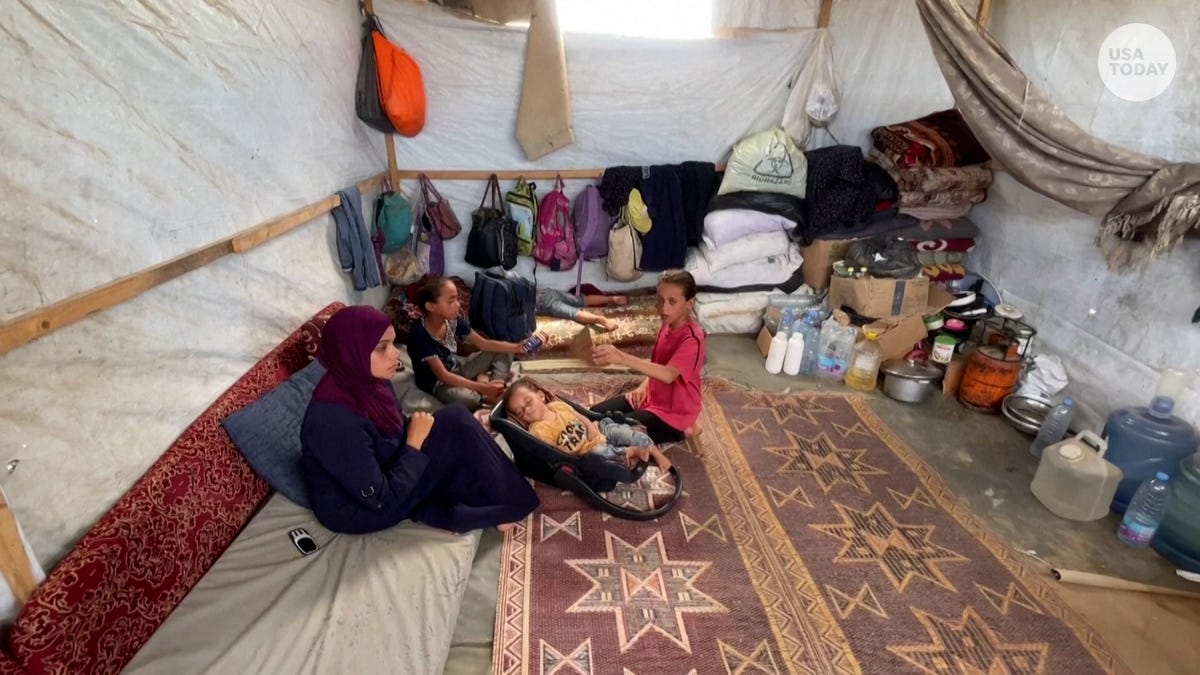Vaccination Against Polio to Commence in Gaza Due to Fears of Virus Spreading
The World Health Organization (WHO) announced on Friday that it will start distributing millions of vaccines for children in Gaza to combat a polio outbreak that poses a risk of spreading beyond the conflict area.
The vaccination campaign kicks off on Sunday, with a goal to vaccinate over 90% of the population. Health workers will spend three days in central, southern, and northern Gaza to contain the virus’s spread. This initiative takes place during a fragile humanitarian pause, which may not allow enough time for workers to ensure adequate immunization across the densely populated territory, according to global health officials. They indicated that navigating through damaged infrastructure presents significant challenges. Ongoing instability and population displacement have further complicated efforts against the polio outbreak.
“We welcome the pause,” said Dr. Tedros Adhanom Ghebreyesus, director-general of WHO, during a press briefing in Geneva. “We hope that all parties respect this temporary halt. However, we believe it is insufficient. We continue to advocate for a full cease-fire, as true peace is the most effective medicine and vaccine.”
This action follows the confirmed case of a 10-month-old boy who contracted polio and suffered partial paralysis. Gaza had not reported any cases in 25 years due to high vaccination rates before the ongoing conflict. The boy was infected with type 2 polio, which the WHO reported has been eliminated in its wild form since 1999. However, type 2 polio from weakened strains found in oral vaccines has started to spread in Gaza. A WHO statement revealed that genetic analysis shows a connection to a strain detected in Egypt, which supposedly began circulating in Gaza around September or October. Such vaccine-derived polio arises when live, weakened viruses in vaccines are shed by individuals, and in areas lacking proper sanitation, the virus can spread within communities, particularly during wartime.
The region has reported three suspected polio cases since deteriorating conditions, including lack of clean water, poor sanitation, and overcrowding, have created suitable circumstances for the virus to spread. Officials have expressed concern about the potential for it to reach outside Gaza, specifically into Israel, where some religious groups resist vaccinating their children, as well as into Lebanon and Syria.
Through this initiative, approximately 640,000 children under ten will receive two doses of the vaccine, administered orally four weeks apart. United Nations officials stated that Israel has consented to a temporary pause in its military operations against Hamas militants and associated groups. The vaccination effort will start in central Gaza and then extend south and north. The WHO has already secured 1.2 million vaccines, with an additional 400,000 doses on the way, and around 2,180 community health workers have been trained to immunize children, Ghebreyesus reported.
Dr. Richard Peeperkorn, WHO’s representative in the Palestinian territories, remarked during a briefing from Gaza that polio vaccination campaigns typically operate through door-to-door outreach. However, due to the ongoing conflict, thousands of health workers are setting up nearly 400 fixed vaccination points where parents can take their children for immunization. Moreover, about 300 mobile health teams will visit families who have difficulties traveling to these sites.
“This setup isn’t ideal, but given the circumstances in Gaza, it’s what we can manage,” Peeperkorn told reporters. “We have an agreed plan among all partners involved, and we believe it can work if everything aligns properly.”
Nonetheless, he expressed concerns about the vulnerability of the operation, emphasizing the need for meticulous planning for vaccines in such a densely populated, compact area like Gaza, which is only 139 square miles in size. This planning includes maintaining a “cold chain” to ensure the vaccines are stored properly and remain effective. He highlighted some logistical challenges faced during the 11 months of conflict, such as securing vehicles and fuel to move vaccines and personnel throughout the region.
Officials underscored the urgent public health issues as infrastructure, including hospitals and routine immunization services, has deteriorated due to the war. Respiratory infections, skin diseases, diarrhea, and hepatitis are rampant in the region.
“While we prioritize the polio vaccination campaign,” Peeperkorn stated, “we have serious concerns about the overall health conditions in Gaza.”
On a global scale, polio cases have dropped by 99% since 1988. During this same period, the WHO reported 24 outbreaks of vaccine-derived polio in 21 countries, resulting in fewer than 760 cases.

